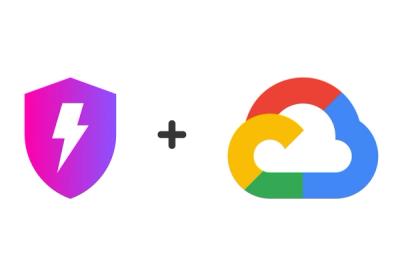
Security News
Next.js Patches Critical Middleware Vulnerability (CVE-2025-29927)
Next.js has patched a critical vulnerability (CVE-2025-29927) that allowed attackers to bypass middleware-based authorization checks in self-hosted apps.
byte-data
Advanced tools
JavaScript binary parser for any browser or environment.
Copyright (c) 2017-2019 Rafael da Silva Rocha.
https://github.com/rochars/byte-data
byte-data is JavaScript binary parser for any browser or environment.
npm install byte-data
Use the byte-data.js file in the /dist folder:
<script src="./dist/byte-data.js"></script>
<script>
// Pack a 32-bit floating-point number
var packed = byteData.pack(2.1474836, {bits: 32, fp: true});
</script>
Or load it from the jsDelivr CDN:
<script src="https://cdn.jsdelivr.net/npm/byte-data"></script>
<script>
var packed = byteData.pack(2.1474836, {bits: 32, fp: true});
</script>
Or load it from unpkg:
<script src="https://unpkg.com/byte-data"></script>
<script>
var packed = byteData.pack(2.1474836, {bits: 32, fp: true});
</script>
This module is distributed as a minified UMD transpiled to ES3 and compatible with IE6+. It should work in all modern browsers and environments that support ES3/ES5/ES6+.
The polyfills used in the compilation are distributed with the package in the scripts/ folder. The polyfills are for the defineProperty and getOwnPropertyDescriptor properties of Object, and are not used in case those properties are already defined.
If you are not using a package manager to install this module, you can get the it via CDNs:
<script src="https://cdn.jsdelivr.net/npm/byte-data"></script>
<script src="https://unpkg.com/byte-data"></script>
Cross-browser tests powered by

const byteData = require('byte-data');
// Pack a signed 16-bit integer to a existing byte buffer
// Start writing on index '4' of the buffer
byteData.packTo(1077, {bits: 16, signed: true}, buffer, 4);
// Pack a usigned 8-bit unsigned integer, returns a
// array with the number represented as bytes
let packed = byteData.pack(128, {bits: 8});
Or import just what you need:
import { pack } from 'byte-data';
// Pack a 8-bit unsigned integer
let packed = pack(128, {bits: 8});
pack(num, theType) will return a Array with the bytes of the passed value.
let packed = pack(123, {bits: 16});
packTo(num, theType, buffer, index) will write the bytes of the number to the provided buffer (Uint8Array or Array), start writing on index.
let buffer = new Uint8Array(4);
packTo(402, {bits: 16}, buffer, 2);
index can be ommited and will default to zero:
let buffer = new Uint8Array(4);
packTo(402, {bits: 16}, buffer);
Packing the following values
will values throw a TypeError.
When unpacking values, extra bytes in the end of the buffer are ignored and insufficient bytes will return a empty array by default.
You can unpack in safe mode with the optional safe param set to true. In safe mode insufficient bytes in the input array or extra bytes in the end of the input array will cause a 'Bad buffer length' error:
// throws a 'Bad buffer length' error
byteData.unpackArrayTo([0xff], theType, output, 0, buffer.length, true);
// throws a 'Bad buffer length' error
byteData.unpackArrayTo(
[0xff, 0xff, 0xff], theType, output, 0, buffer.length, true);
// throws a 'Bad buffer length' error
byteData.unpack([0xff], {bits: 16}, 0, true);
// throws a 'Bad buffer length' error
byteData.unpack([0xff, 0xff, 0xff], {bits: 16}, 2, true);
// do not throw error
byteData.unpack([0xff, 0xff, 0xff], {bits: 16}, 1, true);
Currently only 16-bit half-precision.
To clamp integers on overflow and avoid RangeError, set the optional clamp param to true:
// Set clamp to true; values will be packed
// as their max and min values on overflow
pack(value, theType, true);
packTo(value, theType, buffer, index, true);
packArrayTo(values, theType, buffer, index, true);
Signed integers are two's complement.
UTF-8 strings with 1 to 4 bytes per character can be packed and unpacked. BOM is kept untouched if present. Invalid characters are replaced with Unicode Character 'REPLACEMENT CHARACTER' (U+FFFD). Packing values other than strings with packString() or packStringTo() will throw a TypeError.
Use unpackString(buffer, index, end). The paramters index and end determine a slice of the buffer to read. End is non-inclusive. So to read the first 4 bytes of a buffer:
let str = unpackString(buffer, 0, 4);
// read from buffer[0], buffer[1], buffer[2], buffer[3]
If index and end are ommited unpackString(buffer) will read the entire buffer:
let str = unpackString(buffer);
packStringTo(str, buffer, index=0) will write the string to the provided buffer (Uint8Array or Array), starting on the index. Index defaults to zero if ommited (start from the beginning of the buffer).
// Will write the string to the buffer, array or Uint8Array
let buffer = [];
packStringTo(str, buffer, 0);
// Will return the bytes of the string in a array
let strBytes = packString(str);
Types are user-defined objects like this:
const binary32 = {
bits: 32, // required
signed: true, // optional, defaults to false
fp: true, // optional, defaults to false, true for floating-point numbers
be: false // optional, defaults to false, true for big-endian
}
Use QEMU with this PowerPC/Debian image:
https://people.debian.org/~aurel32/qemu/powerpc/
// Strings
/**
* Read a string of UTF-8 characters from a byte buffer.
* @param {!(Uint8Array|Array<number>)} buffer A byte buffer.
* @param {number} [index=0] The buffer index to start reading.
* @param {number} [end=buffer.length] The index to stop reading, non inclusive.
* @return {string}
*/
function unpackString(buffer, index=0, len=buffer.length) {}
/**
* Write a string of UTF-8 characters as a byte buffer.
* @param {string} str The string to pack.
* @return {!Array<number>} The UTF-8 string bytes.
* @throws {TypeError} If 'str' is not a string.
*/
function packString(str) {}
/**
* Write a string of UTF-8 characters to a byte buffer.
* @param {string} str The string to pack.
* @param {!(Uint8Array|Array<number>)} buffer The output buffer.
* @param {number} [index=0] The buffer index to start writing.
* @return {number} The next index to write in the buffer.
* @throws {TypeError} If 'str' is not a string.
*/
function packStringTo(str, buffer, index=0) {}
// Numbers
/**
* Pack a array of numbers to a byte buffer.
* All other packing functions are interfaces to this function.
* @param {!(Array<number>|TypedArray)} values The values to pack.
* @param {!{bits:number,
* fp: (boolean|undefined),
* signed: (boolean|undefined),
* be: (boolean|undefined)}} theType The type definition.
* @param {!(Uint8Array|Array<number>)} buffer The buffer to write on.
* @param {number} [index=0] The buffer index to start writing.
* @param {boolean} [clamp=false] True to clamp ints on overflow.
* @return {number} The next index to write.
* @throws {Error} If the type definition is not valid.
* @throws {RangeError} On overflow if clamp is set to false.
* @throws {TypeError} If 'values' is not a array of numbers.
* @throws {TypeError} If 'values' is not a array of ints and type is int.
*/
function packArrayTo(values, theType, buffer, index=0, clamp=false) {}
/**
* Unpack a array of numbers from a byte buffer to a array or a typed array.
* All other unpacking functions are interfaces to this function.
* @param {!(Uint8Array|Array<number>)} buffer The byte buffer.
* @param {!{bits:number,
* fp: (boolean|undefined),
* signed: (boolean|undefined),
* be: (boolean|undefined)}} theType The type definition.
* @param {!(TypedArray|Array<number>)} output The output array or typed array.
* @param {number} [start=0] The buffer index to start reading.
* @param {number} [end=buffer.length] The buffer index to stop reading.
* @param {boolean} [safe=false] If set to false, extra bytes in the end of
* the input array are ignored and input buffers with insufficient bytes will
* write nothing to the output array. If safe is set to true the function
* will throw a 'Bad buffer length' error on the aforementioned cases.
* @throws {Error} If the type definition is not valid.
* @throws {Error} On bad input buffer length if on safe mode.
*/
function unpackArrayTo(
buffer, theType, output, index=0, end=buffer.length, safe=false) {}
/**
* Pack a number to a byte buffer.
* @param {number} value The value.
* @param {!{bits:number,
* fp: (boolean|undefined),
* signed: (boolean|undefined),
* be: (boolean|undefined)}} theType The type definition.
* @param {!(Uint8Array|Array<number>)} buffer The byte buffer to write on.
* @param {number} [index=0] The buffer index to write.
* @param {boolean} [clamp=false] True to clamp ints on overflow.
* @return {number} The next index to write.
* @throws {Error} If the type definition is not valid.
* @throws {RangeError} On overflow if clamp is set to false.
* @throws {TypeError} If 'value' is not a number.
* @throws {TypeError} If 'value' is not a int and type is int.
*/
function packTo(value, theType, buffer, index=0, clamp=false) {}
/**
* Pack a number as a array of bytes.
* @param {number} value The number to pack.
* @param {!{bits:number,
* fp: (boolean|undefined),
* signed: (boolean|undefined),
* be: (boolean|undefined)}} theType The type definition.
* @param {boolean} [clamp=false] True to clamp ints on overflow.
* @return {!Array<number>} The packed value.
* @throws {Error} If the type definition is not valid.
* @throws {RangeError} On overflow if clamp is set to false.
* @throws {TypeError} If 'value' is not a number.
* @throws {TypeError} If 'value' is not a int and type is int.
*/
function pack(value, theType, clamp=false) {}
/**
* Unpack a number from a byte buffer.
* @param {!(Uint8Array|Array<number>)} buffer The byte buffer.
* @param {!{bits:number,
* fp: (boolean|undefined),
* signed: (boolean|undefined),
* be: (boolean|undefined)}} theType The type definition.
* @param {number} [index=0] The buffer index to read.
* @param {boolean} [safe=false] If set to false, extra bytes in the end of
* the input array are ignored and input buffers with insufficient bytes will
* write nothing to the output array. If safe is set to true the function
* will throw a 'Bad buffer length' error on the aforementioned cases.
* @return {number}
* @throws {Error} If the type definition is not valid.
* @throws {Error} On bad input buffer length if on safe mode.
*/
function unpack(buffer, theType, index=0, safe=false) {}
/**
* Pack a array of numbers as a array of bytes.
* @param {!(Array<number>|TypedArray)} values The values to pack.
* @param {!{bits:number,
* fp: (boolean|undefined),
* signed: (boolean|undefined),
* be: (boolean|undefined)}} theType The type definition.
* @param {boolean} [clamp=false] True to clamp ints on overflow.
* @return {!Array<number>} The packed values.
* @throws {Error} If the type definition is not valid.
* @throws {RangeError} On overflow if clamp is set to false.
* @throws {TypeError} If 'values' is not a array of numbers.
* @throws {TypeError} If 'values' is not a array of ints and type is int.
*/
function packArray(values, theType, clamp=false) {}
/**
* Unpack a array of numbers from a byte buffer.
* @param {!(Uint8Array|Array<number>)} buffer The byte buffer.
* @param {!{bits:number,
* fp: (boolean|undefined),
* signed: (boolean|undefined),
* be: (boolean|undefined)}} theType The type definition.
* @param {number} [start=0] The buffer index to start reading.
* @param {number} [end=buffer.length] The buffer index to stop reading.
* @param {boolean} [safe=false] If set to false, extra bytes in the end of
* the input array are ignored and input buffers with insufficient bytes will
* write nothing to the output array. If safe is set to true the function
* will throw a 'Bad buffer length' error on the aforementioned cases.
* @return {!Array<number>}
* @throws {Error} If the type definition is not valid.
* @throws {Error} On bad input buffer length if on safe mode.
*/
function unpackArray(buffer, theType, start=0, end=buffer.length, safe=false) {}
byte-data welcomes all contributions from anyone willing to work in good faith with other contributors and the community. No contribution is too small and all contributions are valued.
See CONTRIBUTING.md for details.
byte-data code should follow the Google JavaScript Style Guide:
https://google.github.io/styleguide/jsguide.html
This project is bound by a code of conduct: The Contributor Covenant, version 1.4, also available at https://www.contributor-covenant.org/version/1/4/code-of-conduct.html
Use the GitHub issue tracker.
Report security issues to this e-mail: rocha.rafaelsilva@gmail.com.
Copyright (c) 2017-2019 Rafael da Silva Rocha.
Permission is hereby granted, free of charge, to any person obtaining a copy of this software and associated documentation files (the "Software"), to deal in the Software without restriction, including without limitation the rights to use, copy, modify, merge, publish, distribute, sublicense, and/or sell copies of the Software, and to permit persons to whom the Software is furnished to do so, subject to the following conditions:
The above copyright notice and this permission notice shall be included in all copies or substantial portions of the Software.
THE SOFTWARE IS PROVIDED "AS IS", WITHOUT WARRANTY OF ANY KIND, EXPRESS OR IMPLIED, INCLUDING BUT NOT LIMITED TO THE WARRANTIES OF MERCHANTABILITY, FITNESS FOR A PARTICULAR PURPOSE AND NONINFRINGEMENT. IN NO EVENT SHALL THE AUTHORS OR COPYRIGHT HOLDERS BE LIABLE FOR ANY CLAIM, DAMAGES OR OTHER LIABILITY, WHETHER IN AN ACTION OF CONTRACT, TORT OR OTHERWISE, ARISING FROM, OUT OF OR IN CONNECTION WITH THE SOFTWARE OR THE USE OR OTHER DEALINGS IN THE SOFTWARE.
FAQs
JavaScript binary parser for any browser or environment.
We found that byte-data demonstrated a not healthy version release cadence and project activity because the last version was released a year ago. It has 1 open source maintainer collaborating on the project.
Did you know?

Socket for GitHub automatically highlights issues in each pull request and monitors the health of all your open source dependencies. Discover the contents of your packages and block harmful activity before you install or update your dependencies.

Security News
Next.js has patched a critical vulnerability (CVE-2025-29927) that allowed attackers to bypass middleware-based authorization checks in self-hosted apps.

Security News
A survey of 500 cybersecurity pros reveals high pay isn't enough—lack of growth and flexibility is driving attrition and risking organizational security.

Product
Socket, the leader in open source security, is now available on Google Cloud Marketplace for simplified procurement and enhanced protection against supply chain attacks.